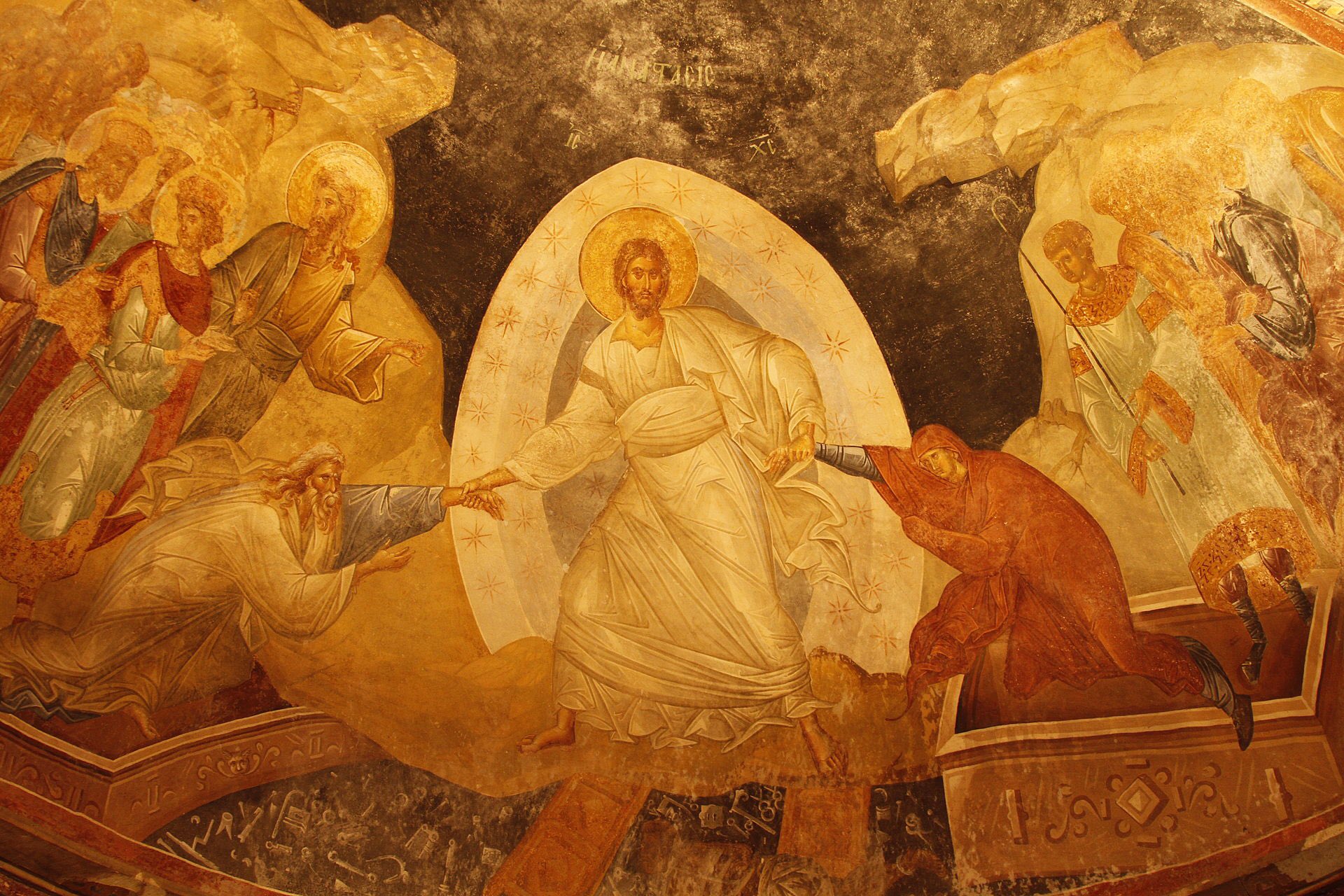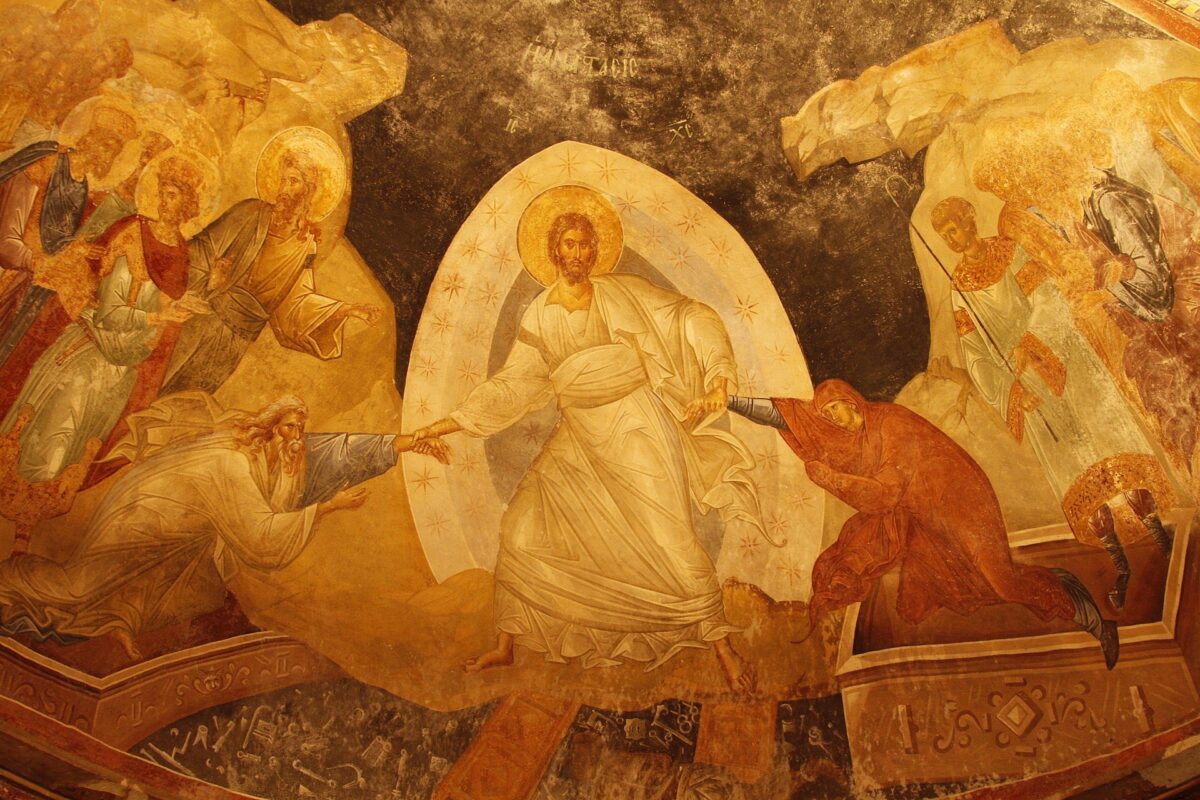
This is the editorial from our Newsletter for Easter 2025. To view the full version click here
Resurrection
Dear Friends
Welcome to the T4CG Newsletter for the Easter Season.
Over the fifty days leading up to Pentecost, we encounter the formation of the first Christian communities. In our liturgies we read in the book of Acts how the Holy Spirit galvanised a group of frightened disciples into a community capable of evangelising the world. As we revisit this scripture, we are prompted to imagine what it will take to become such a people in our own time.
This year has extra significance. In a rare occurrence, the Gregorian, Julian and Hebrew calendars calculations meant that not only did Eastern Orthodox and Western Catholics celebrate Easter on April 20, but the Jewish people also concluded their Passover celebration on the same date.
Almost from the beginning of the Church, Christians understood that the Passion and Resurrection of Christ was the completion of the Festival of Passover, signifying that the Lord’s deliverance of the Israelites from slavery in Egypt was only the foreshadowing of the Resurrection of the Lord and of the deliverance of humanity from sin and death. Thus, Resurrection Day became known as the “Paschal Mystery”, after the Hebrew word for Passover: Pasch.
What does it take to become a people of the Resurrection? As Pope John Paul II famously said, ‘We are an Easter people and Alleluia is our song.’ Drawing on Augustine’s exposition on Psalm 148, he was indicating that being such a people is not just for a day, nor just for a season, we are called to a way of life. He goes on to qualify what the Easter season should mean for us: ‘We are not looking for a shallow joy but rather a joy that comes from faith, that grows through unselfish love, that respects the fundamental duty of love of neighbour, without which it would be unbecoming to speak of Joy’. Easter must not be domesticated.
This way of life, this fundamental duty of love of neighbour – which was also a great theme for Pope Francis too – is a call to action for our Pascal Season. But how do we avoid the temptations of a ‘shallow joy’?
To be a people of the Resurrection, we must enter the depths of the Crucifixion. The silence and darkness of Holy Saturday provide us with the necessary disorientation. We must carry this with us through the Paschal season – this place where everything seemingly has come undone. It is a place not to be fixing things, but just to be. There is perhaps a sacramentality to the nothingness. We are to go into the humiliation and the pain of our Lord, uniting our pain with His. In this place of surrender, we can begin to see the world from the perspective of the crucified Christ. We can pray along the lines of, ‘unite me with your wounds Lord, let it be a blessing for me to experience your suffering and to share with you the view from the cross.’
Our Lord was a man of sorrows acquainted with grief. As we enter into the contemplation of the Crucifixion, we notice his grave expression. We begin to see the way He sees. Joining with His pain leads us to see with His great compassion but also His uncompromising truth. We see the foolishness, the cruelty, the madness of crowds. We see the crushing of the human spirit in unemployment, the evil of assisted suicide, the horror of aborting babies, the terror of every girl or woman raped, the humiliation of loneliness, the persecution of the faithful for their beliefs, the violence of war, the corruption of demoralisation, the intimidation of those with the courage to tell the truth about biological sex. There are many more crucifixions. The view from the cross is the place of most clarity. It is where the evil of the world is most easily perceived.
This calling to see and to respond is not easy. But this is not a time for a complacent church. In Amos 5, God condemns worship, even sincere worship, if the everyday life of the faithful fails to manifest justice and righteousness in their attitude to, and solidarity with, the poor and those who suffer injustice. Worship and life must be of one piece, not separated or compartmentalised.
This Paschal mindset does not avoid difficult issues in an “out of sight, out of mind” kind of way. It calls us to resist the temptations of indifference and moral squeamishness and to be a people with the courage to notice, listen and act in solidarity. It calls us beyond the concerns of our personal salvation journey to a ‘fundamental duty of love of neighbour’, including the love that strives to reform the structures of sin that blight our country.
Pope John Paul II was profoundly concerned that neoliberal economies were undermining the inherent dignity of human work. Drawing deeply on Scripture, his 1981 encyclical Laborem Exercens called for a political economy with dignified work as the cornerstone. He believed that it is ‘through work’ that a person ‘achieves fulfillment as a human being,’ and participates in God’s creative plan.
Examining the realities of contemporary economies, John Paul rejected all systems which undermined the dignity of the human being. This was a man who had experienced Nazi occupation first hand, who encouraged the „Solidarność” labour movement in Communist Poland, and who was aware of widespread exploitation of workers and the commodification of labour in so-called free markets, especially in poorer countries. Just as his predecessors had done, Pope Francis, the great champion of the poor – may he rest in peace – also warned about this inherently unstable ‘economy of exclusion and inequality.’ He said, ‘such an economy kills.’
We are now seeing major geopolitical shifts. Globalisation is breaking down, and the long-predicted end of neoliberalism brings opportunity. The new era is fraught with uncertainty and yet there is space to shape the future: we are called to help create a civilisation of love. For each of us, it means finding our own unique way of making a constructive contribution, however small.
The protection of human flourishing requires the rejection of techno-feudalism and the building of a common good political economy, a system based on the dignity of decent work. For the churches and Christian charities, this means a rejection of welfarism and a shift in posture from service to solidarity.
To be a Resurrection people we must not only express joy. Our Lord, who does not shy away from hard questions, is as close to the sorrows and injustices of the world as he is to the joys. Having encountered the meaning of the Crucifixion, we must ask God to preserve in us that ability to discern good from evil. Our Lord was killed by an oppressive Roman regime. Today, we must not turn away from the Crucifixion of good people by the principalities and powers of our own time.
During his visit to Liverpool, John Paul II prayed, ‘Lord, Restore Your Church on Earth Through the Gifts of Penance and Reconciliation.’ This means penance for the times we turned away and reconciliation with the people we have forgotten. The radical reality of this Pascal season is about deliverance. We are called to be an Easter people, for whom Easter isn’t merely a day or even a season. It’s a life of resurrection where we die and are reborn every day.
Wishing you a blessed Easter season.
Jenny Sinclair and all the team at Together for the Common Good
*****
This is the editorial from our Newsletter for Easter 2025. To view the full edition, click here
In this edition
For the Easter season, we’re delighted to bring you lots of great content. First, a report by Jenny Sinclair and Jon Kuhrt following a retreat exploring the challenges to Christian social action, a story by Phil McCarthy about pilgrimage and a reflection by Francis Davis on the church as a civic partner. You’ll also find a talk by Jenny Sinclair on the purpose of Catholic Social Teaching (to build a civilisation of love) and the latest Leaving Egypt episodes, featuring conversations with Bejoy Pal, Adrian Pabst and Sally Gaze. Last but not least, you will find Signs of the Times, our latest collection of articles and Recommended Books.
To view this content, click here
RIP Pope Francis
Mourning the death of Pope Francis, we recall a man who longed for “a Church which is bruised, hurting, and dirty because it has been out on the streets, rather than a Church which is unhealthy from clinging to its own security.” He did not please everyone, but he embodied the principle of the preferential option for the poor. In his struggle to refocus ecclesial priorities, he fought for a more personal Church, and his encyclicals, Laudato Si, Fratelli Tutti and Dilexit Nos expressed God’s love for human life and creation. Our good and faithful servant has been called home to the Lord. May he rest in peace.

